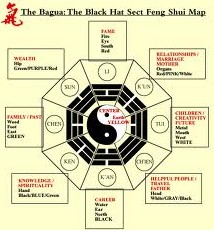文字难度:★★★
Feng shui began when people had a very different way of explaining the world. They regarded the heavens, the earth, and themselves as part of one system. For them, charting the progress of the moon and sun, the movement of the stars and the planets, interpreting different weather conditions, etc., was essential as these people depended upon the land to provide them with the means to survive. Feng shui has grown over centuries by 1)trial and error, observation and 2)superstition. There are a lot of feng shui rules that even 3)die-hard 4)skeptics have trouble disputing. But most of the dos and taboos in feng shui are scientifically explainable.
当人们开始对世界以另一种方式去进行诠释时,风水之说随之诞生了。当时,人们认为天地人三者合一。对于他们来说,记录日月星辰的移动轨迹、分析气候变化等等,都是至关重要的,因为对于以地为生的他们来说,这些因素与他们的生存息息相关。经过几百年的反复摸索、观察和迷信,风水学得到了发展。许多风水学上的规定,即使是强硬派的风水学怀疑主义者也难以辩驳。而大多数的风水建议和风水禁忌是能从科学的角度来解释的。
A feng shui master tells you not to build in a particular location as there is a “restless dragon” beneath the surface. A 5)seismologist says you are close to a geological 6)fault line, where the 7)tectonic plate is likely to shift again.
风水大师会让你不要在某个地点建房子,因为那里的地下有“游龙”。而地震学家则会对此解释说,不要在地质断层附近进行建筑选址,因为那里的地壳构造板块很有可能会再次移动。
 A feng shui master suggests that you live in harmony with the elements of nature by establishing a balance in your environment. Present day focus on ecology, conservation, and controlling pollution is an effort to achieve the same.
A feng shui master suggests that you live in harmony with the elements of nature by establishing a balance in your environment. Present day focus on ecology, conservation, and controlling pollution is an effort to achieve the same.
风水大师建议我们与大自然和谐相处,营造与自然平衡的居住环境。而现在,我们致力于生态保护、环境保护和污染控制的这些举措,终究是“殊途同归”。
A feng shui 8)practitioner advises against living under or very close to a 9)flyover as it will direct sha chi or bad chi towards you. Scientists speak of high levels of 10)carbon monoxide from car exhaust affecting your health.
风水师建议我们不要居住在高架公路下面或附近,是因为这些地方会给你带来“煞气”或“坏气”。而科学家认为,这些地方有大量汽车所排放的一氧化碳,这些废气会影响人们的身体健康。
A feng shui practitioner suggests that natural light in your house, even temperature, and a 11)decor that establishes harmony between the materials and objects elevates the energy levels and moods of the inhabitants. Psychologists explain the depression and effect on peoples’ moods due to change in weather as “Seasonal Affective Disorder.” The cure prescribed is the same as what the Feng Shui practitioner advises.
风水师认为,如果室内的自然光,甚至温度能与室内装饰相配合,在材质和物品之间形成和谐,那将能促使居住者精力充沛、心情舒畅。心理学家们在解释由于天气的变化而造成的情绪低落时,将这种情况称之为“季节影响型症候群”。而对应的治疗方法则与风水师的建议相差无几。
